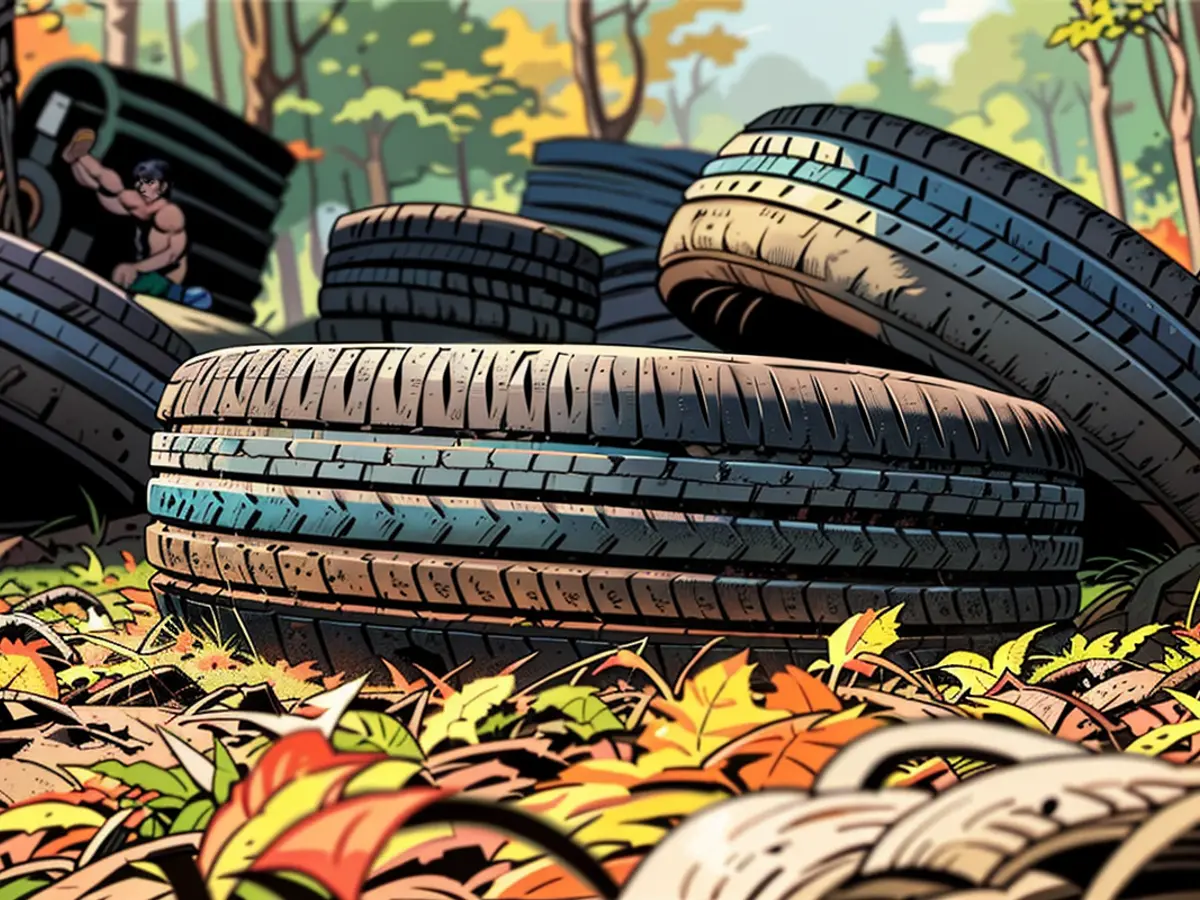- Local authorities express concern over unauthorized waste overflow incidents.
Numerous towns in Thuringia are grumbling about the escalating or persistently high volume of illicitly discarded garbage and the exorbitant expenses for disposal. "As a municipal waste management company, it's truly bewildering to us how much waste unnecessarily winds up in nature and the surroundings," explains Stefanie Braune, spokesperson for the city of Jena.
Similar sentiments are echoed by the spokespersons of the cities of Eisenach, Weimar, Gera, and the Weimarer Land district: During the pandemic, the number of garbage dumps skyrocketed significantly and has remained elevated ever since. While Erfurt can only confirm an increase in garbage reports, the trend is declining in Suhl.
Tons of Trash
In Jena, according to city statistics, the disposal costs for approximately 60 tons of illegal trash last year amounted to around 35,000 euros. The figure was comparable in the previous year.
In Eisenach, a spokesperson estimates that around 19 tons of household garbage, 240 used tires, more than two tons of metal scrap, and 500 kilograms of asbestos were removed from forests, fields, bike paths, container sites, and remote locations in 2023. The total disposal costs at around 3,000 locations amounted to approximately 88,000 euros.
In Suhl, 30 tons of illegally discarded residual waste were delivered to the recycling plant last year, in Gera an average of 10 to 12 tons, and in the Weimarer Land district 80 tons, according to the spokespersons of the municipalities.
Extra "Pizza Boxes" at Erfurter Parks
Particularly in large cities, there are seasonal differences: In the parks of Erfurt, Jena, and Eisenach, there is a significant accumulation of disposable grills, pizza boxes, and other picnic leftovers on warm days. Therefore, there are now special "pizza boxes" near the parks in Erfurt. The seasonal tire change is particularly noticeable in the spring and autumn.
In the overall balance, however, there are no seasonal peaks, as only the type of illegally discarded waste changes over the course of the year. In Weimar, the so-called "give-away boxes," where no longer needed items are put out for free, also cause problems. Frequently, these boxes are left out in the rain and wind until they have to be disposed of by the street cleaning department, according to a spokesperson.
The reasons for illegal disposal are varied, it is said in unison. They range from simple convenience to cultural differences in waste management to avoiding potential costs. Especially with regard to bulky waste, it is not comprehensible why waste is transported with vehicles into the forest or onto fields instead of being taken to recycling centers, it is said from Gera.
Drones and CCTV Cameras Against Garbage Dumps?
In many towns, various measures have been running for years to address this issue. These range from digital and analog public relations, waste education in schools, kindergartens, and senior centers to attempts to identify and prosecute the offenders.
The legal basis for this is actually sufficient, says Ulrike Müller from the city of Eisenach. "But in practice, it often fails at implementation." Regular checks are labor-intensive and always come with corresponding costs.
In early 2024, the department of "Cleanliness" was established in Eisenbach. Nevertheless, especially at tourist hotspots like the Dragon Gorge, the help of the population - for example through joint cleaning actions, private volunteer litter collectors, and two citizen initiatives - is indispensable to manage the post-holiday waste surge "to some extent", according to the city spokesperson.
The city of Jena views stricter state and federal laws as a solution: "For instance, higher fines and intensified checks through the use of surveillance cameras or drones could be introduced", says spokesperson Stefanie Braune. A nationwide campaign to raise awareness or better incentives for proper disposal through more free disposal options or refunds for recycled materials are also conceivable.
In Jena, the city spent around 35,000 euros to dispose of approximately 60 tons of illegal trash last year, highlighting the significant financial burden of waste mismanagement. (Waste, disposal costs)
The city of Jena is advocating for stricter laws, such as higher fines and increased surveillance using drones, to deter illegal waste disposal and promote responsible waste management. (Waste, fines, drones)








